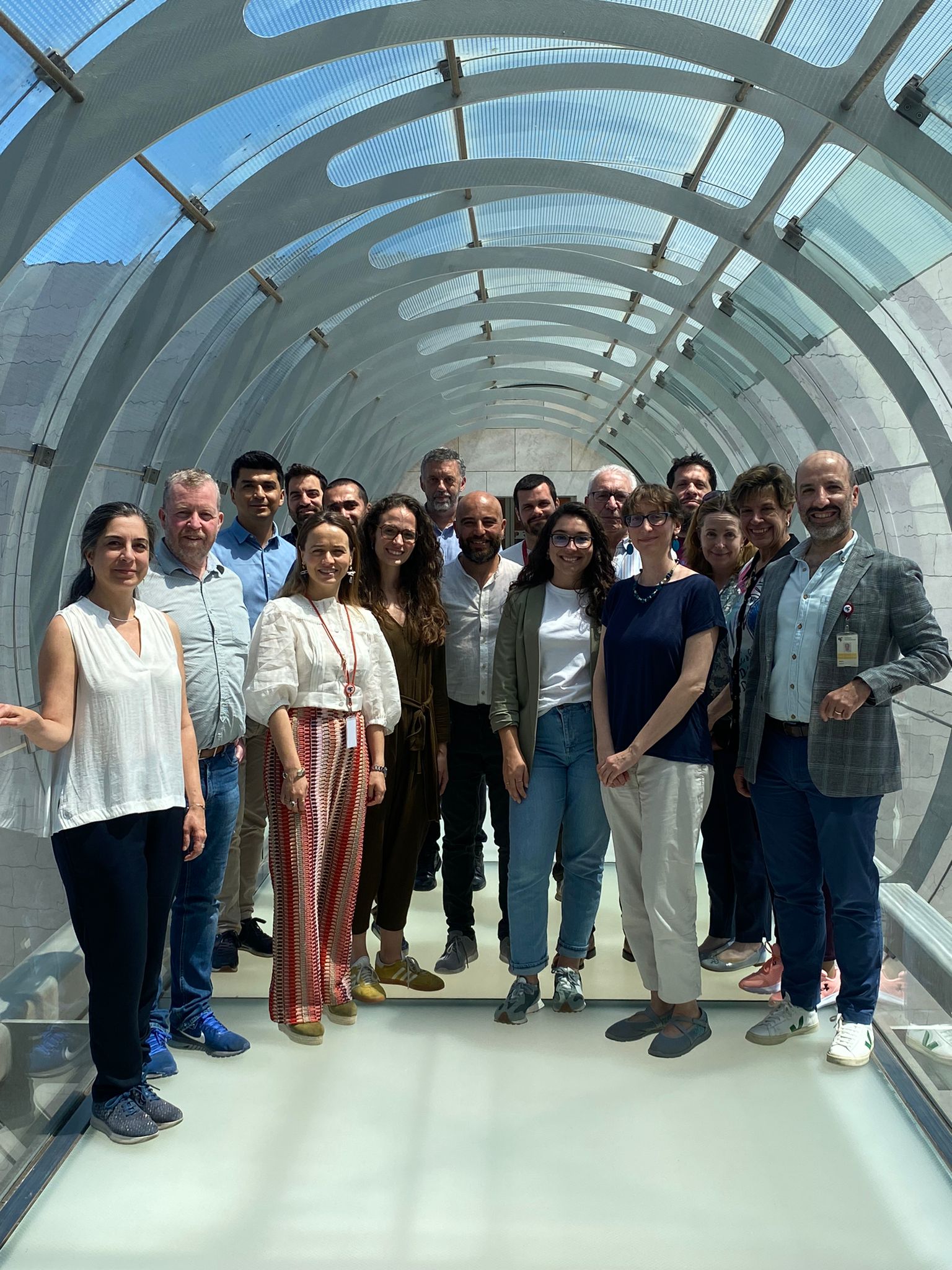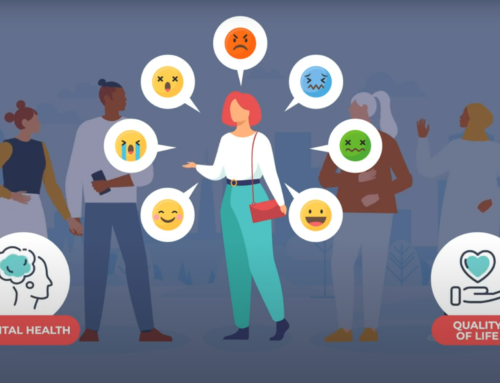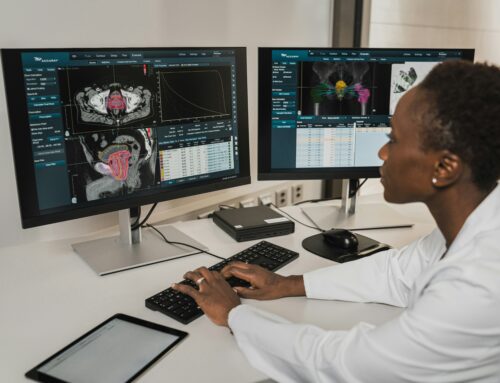The final FAITH project plenary (held in Champalimaud Foundation premises, Lisbon, 28 May 2024) underscored some important contributory factors to the successful project outcomes and continuing momentum. Firstly, effective and representative participation at different levels has been instrumental to understanding the problem domain and advancing solutions with the potential to improve the situation. Secondly, the project achievements represent an interim step in an ongoing mission to improve mental health outcomes in cancer survivors. The sustainability of these outcomes and this effort must be carefully considered. This blog post will in particular focus on reflecting on the theme of effective participation as the project draws to a close.
Patients participation as user engagement
The consortium mix includes technologists, scientists, clinicians and human organisational factors and User Experience Design experts. The clinicians include practicing oncologists, oncology nurses and psychiatrists with both public (Hospital General Universitario Gregorio Marañón) and private hospitals (Champalimaud Foundation) represented. Therefore, there is a deep, first hand appreciation of the scientific context and patient care perspectives. Importantly, these partners have a mandate and resource to engage in research alongside their clinical activities. The technical and RPO partners, SETU, UNINOVA, Universidad Politécnica de Madrid – UPM, Deep Blue, and Suite5, bring advanced software and data management, including AI, federated architectures, and data privacy preservation expertise to address the challenges elaborated by the clinical partners
A central contingency in FAITH is the participation of patients in the project trials. Participation is not passive; it involves engagement with clinician triggered recruitment activities, an initial onboarding process with comprehensive data collection and an introduction to the technologies (FAITH App, Fitbit), commitment to continual data collection and periodic survey completion. The initial project had an ambitious recruitment target of 300 participants, a target that became more challenging due to unforeseen factors including the COVID pandemic and the withdrawal of a hospital partner. Despite these challenges, the commitment of the clinical teams has resulted in the recruitment of a large number of participants and, furthermore, the dropout rate has been extremely low.
The success in recruitment and retention can be attributed to a number of factors. Led by UPM, trials were carefully designed and carefully monitored to ensure seamless execution and continuous improvement. At a human level, the relationship between oncologists and patients and the commitment of oncology team is proving very valuable. At a more personal level, there is anecdotal evidence that the proximity of multi-generational family members during COVID lockdowns provided support to trial participants with the use of digital tools for the purposes of the trial. Additionally, the nature of COVID in general accelerated the update of digital technologies.
User-centred design of eHealth solutions
The solutions themselves were developed with a human-centred design perspective. The hospital interface delivered by UNINOVA further enables continuous and effective participation by the clinicians, with an intuitive dashboard and impactful visualisations. The Android and iOS mobile apps, developed by Suite5, while supporting comprehensive data collection in accordance with validated study designs, is designed for ease of use by trial participants.
Both the clinician interface (UNINOVA) and mobile apps (Suite5) have been continuously improved implementing feedback from various stakeholders and users through successive engineering releases. To date, there have been 4 x releases for the clinical interface, 2 for the predictors interface and 3 major and 30 smaller releases for the mobile app. The numerous releases reflect the fact that the FAITH App is a living app actively used by trial participants and continuously improved in response to stakeholder for feedback.
An example of relates to alerts which clinicians flagged as important. This feature was added so that a an alert could be raised to clinicians, when the score on a HADS questionnaire exceeded a certain threshold. Many usability features were added over the course of the trial, including customisation of questionnaire requests based on individual participant trial start dates. But, perhaps one of the greatest challenges for FAITH to successfully implanting the human-centred design approach is explainable Artificial Intelligence. To date, AI explainability has tended to focus on providing information for developers. In FAITH, project partner and human-centred design experts Deep Blue worked to bridge the gap between explanations suitable for developers and users with a narrative approach that gives results, degree of confidence, underlying contributors and relative measures of impact.
Towards the future of eHealth solutions for cancer
Following on from the project plenary, FAITH”s Final Conference – ‘AI and Smart Technology in Mental Health Care for Cancer Survivors’ highlighted the exciting and vibrant research ecosystem with various projects sharing learnings and stimulating discussions around follow on activities. The “Cancer Survivorship – Artificial Intelligence for Well Being” Cluster, let by FAITH partner TFC Research and Innovation, and representing 12 projects, presented its plans for sustainability and work in progress including a Better Practice Guide and White Paper. While the conference talks highlighted challenges to innovation uptake, the economic and societal needs were portrayed as compelling drivers to continue the great work undertaken by these research initiatives.
As the FAITH project draws to a close, SETU is grateful to have had the opportunity to coordinate this effort and work with these committed, ambitious and talented partners and looks forward to continued collaboration.
Authors: Gary McManus, Christine Stewart – Walton Institute




